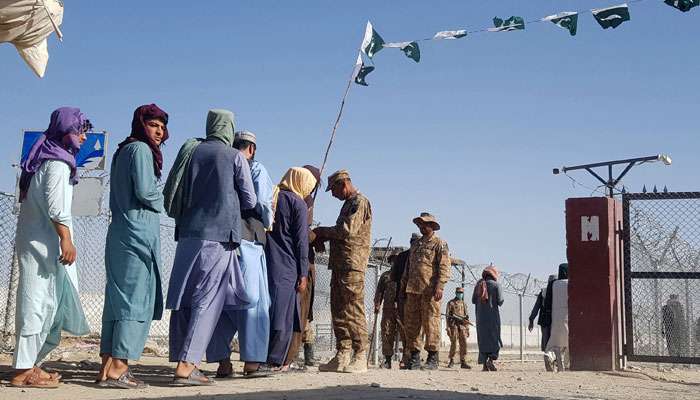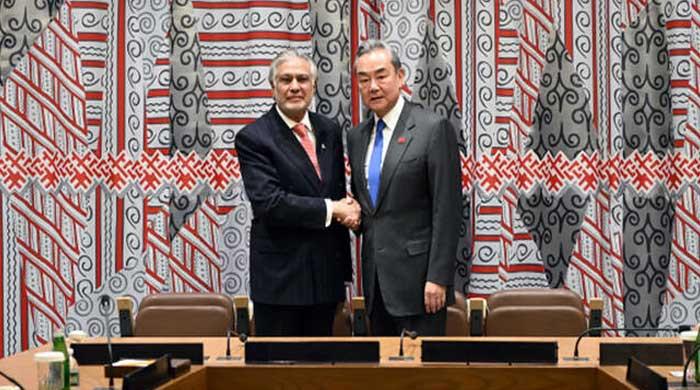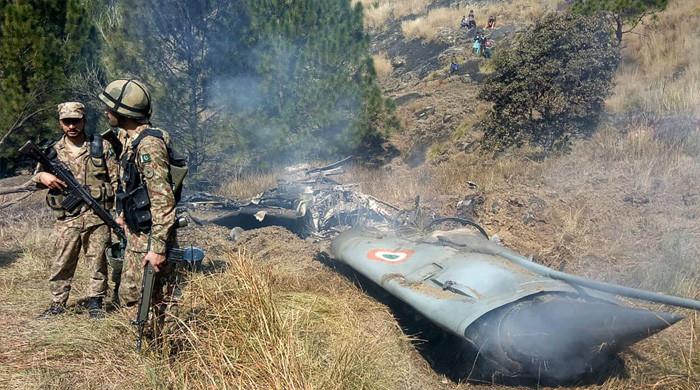Sindh forms committees to oversee repatriation of 'aliens'
Committees to include representatives of Sindh's commissioner for Afghan refugees IB, ISI, MI, Nadra
October 03, 2023

- Federal govt gives November 1 deadline to "aliens" to leave Pakistan.
- "Implementation Committees" to work on province, division, district-levels.
- Committees will gather data on unregistered refugees, take steps for deportation.
KARACHI: The Sindh Home Department Tuesday constituted committees at province, division, and district levels to oversee the expulsion of illegal foreigners living in the province.
"In order to oversee implementation of the process of repatriation of illegal foreigners, in Implementaoitn Committee is hereby constituted," a notification issued by the department read.
The committees will include representatives of intelligence agencies including Inter-Services Intelligence (IS), Intelligence Bureau (IB), Military Intelligence (MI), Federal Investigation Agency (FIA), National Database and Registration Authority (NADRA), and Sindh's Commissioner for Afghan refugees.
They will gather data on unregistered refugees living in the province and will not only be responsible for taking measures to expel them but will also take steps to prevent their entry into the province.
The province and division-level committees will be chaired by the additional chief secretary and concerned divisional commissioner respectively, whereas district-level committees will be headed by concerned deputy commissioners.
Earlier in the day, Interim Interior Minister Sarfraz Bugti said that the huddle set November 1 as the deadline for the illegal "aliens" to leave the county voluntarily.
The decision came days after a deadly suicide blast in Balochistan’s Mastung, in which over 60 people lost their lives. In most of the recent terror incidents in Pakistan, Afghan nationals or soil was reportedly used.
Speaking on the occasion, the caretaker interior minister revealed that Afghan nationals were responsible for 14 of the 24 suicide bombings in the country this year.
A day earlier federal government, citing security risks, announced its decision to expel 1.1 million foreigners illegally residing in Pakistan.
According to details, the government will evict illegal "aliens" in the first phase along with those who do not renew their visas.
In the second and third phases, those living in Pakistan with Afghan citizenship and possessing proof of residence cards will be deported respectively.
“Illegally resident foreigners pose a serious threat to the security of Pakistan,” said a source privy to the development, adding that the plan for eviction of illegally residing Afghan citizens has also been approved as this lot is involved in funding, facilitating and smuggling terrorists whereas 700,000 Afghans have not renewed their proof of residence in Pakistan.
In the meantime, the ministry has also issued directives to the concerned to compile a record of Afghans living without permits and prepare a transportation plan to bring them to the Afghan border.











